On paper, an introvert and an extrovert might seem like total opposites.

At the most basic level, one recharges in silence, the other thrives on social energy. However, when it comes to parenting, that contrast can be a real win. Together, they often create a home that’s both calm and lively, structured but spontaneous. Agreeing or doing things the same way isn’t always the most important thing. In reality, it’s about balancing each other out in a way that quietly benefits the kids. Here’s why this dynamic duo often ends up making some of the most well-rounded parents out there.
1. They give kids space and stimulation.
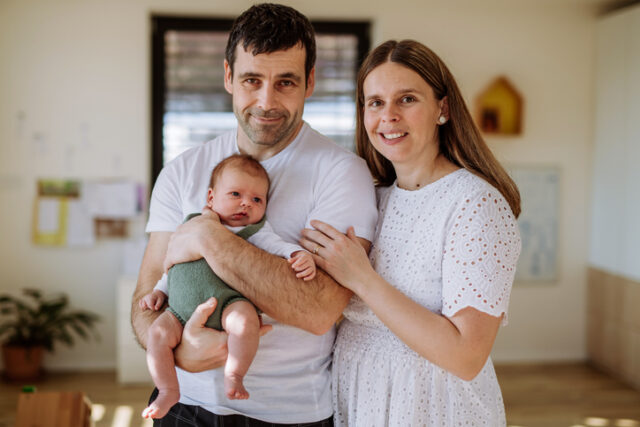
Extroverts are usually great at keeping the energy up with playdates, outings, weekend chaos, you name it. Introverts, on the other hand, are better at noticing when everyone needs downtime. That combo helps children get both the social buzz and the calm reset they need to thrive.
It means the house isn’t constantly noisy or always silent. There’s room for both the birthday party and the quiet Sunday. And that kind of balance helps kids feel more secure in their own personalities, no matter where they fall on the spectrum.
2. They show kids it’s okay to be different.
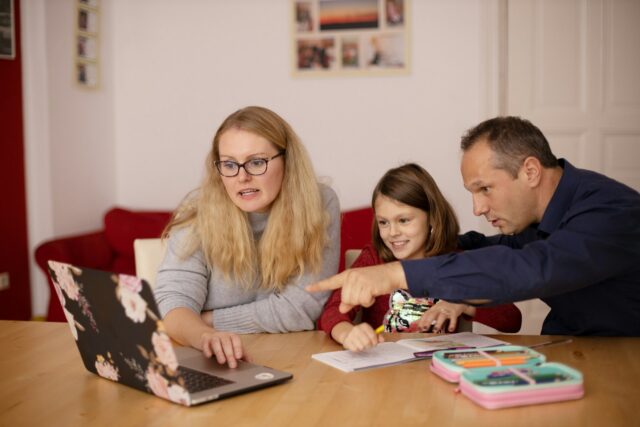 Source: Unsplash
Source: Unsplash When parents have noticeably different personalities, it gives kids a real-life example of how two very different people can respect each other. It normalises difference—not just tolerating it, but genuinely working with it. Kids see that there isn’t one “right” way to be. You can be loud or quiet, social or reserved, and still be loved, listened to, and understood. That’s huge for building self-confidence and empathy.
3. They model teamwork without sameness.
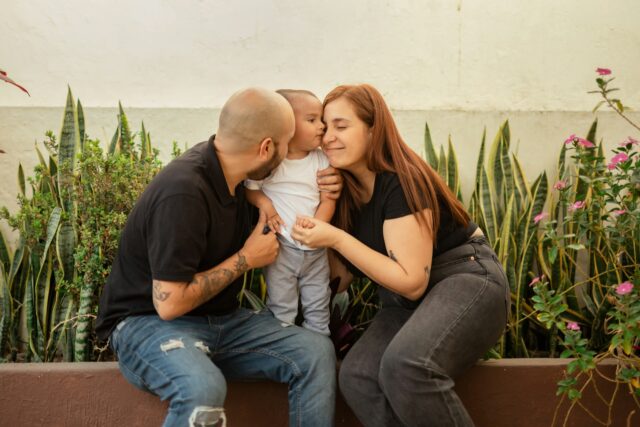 Source: Unsplash
Source: Unsplash Introvert-extrovert couples are constantly negotiating energy, space, and needs, and that teaches kids what real teamwork looks like. It’s not always smooth, but it’s often incredibly functional. Children raised in these homes see their parents backing each other up, even when they’re not approaching things the same way. That kind of cooperative problem-solving lays the groundwork for good relationships later in life.
4. One parent often spots what the other misses.

Extroverts might overlook a child’s subtle signs of overwhelm, while introverts might miss the need for social exposure. Together, they cover more ground and can respond to different types of needs more effectively. This tag-team awareness means fewer blind spots and more nuanced parenting. Whether it’s emotional or behavioural stuff, they’re more likely to catch things early, and respond with a mix of empathy and action.
5. They strike a balance with discipline.

Introverts tend to be more reflective and steady when it comes to setting rules, while extroverts might be more vocal and immediate. That blend can result in a calm but firm approach to boundaries. Kids often need both structure and energy from their parents, and this duo brings exactly that. It’s not about one parent being the “soft” one and the other being “strict.” It’s about blending instincts in a way that works.
6. They create a home with emotional range.

Some families are loud all the time; others are quiet to the point of repressed. However, when you’ve got one of each personality, you get variety, and kids grow up used to a full range of emotional expression. That makes it easier for children to find their own style of communication. They’re not boxed into one way of expressing joy, frustration, or love. They see multiple versions play out daily.
7. They balance parenting energy levels.

Parenting takes energy—sometimes a ridiculous amount. An extrovert might be ready to host a birthday party after a long week, while the introvert might be better at staying patient through an emotional meltdown at bedtime. Their energy replenishes in different ways, which means they can often take turns being the more “on” parent without burning out together. That’s gold when you’re in it for the long haul.
8. They offer different types of support.

An extrovert parent might be the one cheering the loudest at sports day, while the introvert is quietly helping with homework or calming pre-exam nerves. Both kinds of support are valuable, and kids often benefit from having access to both. It also teaches children that love doesn’t always look the same. Sometimes it’s loud and visible. Sometimes it’s quiet and steady. They learn to recognise and appreciate both.
9. They don’t parent on autopilot.
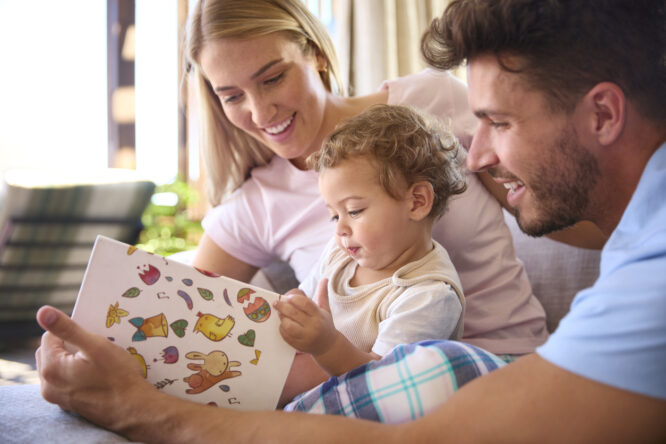
Introvert-extrovert couples can’t assume the other sees things the same way, so they end up talking, adjusting, and planning more intentionally. That awareness often leads to more thoughtful parenting overall. They’re not relying on instinct alone. They’re checking in, comparing notes, and constantly recalibrating based on what the kids actually need. It’s more effort, but often, it leads to better outcomes.
10. They model respectful disagreement.
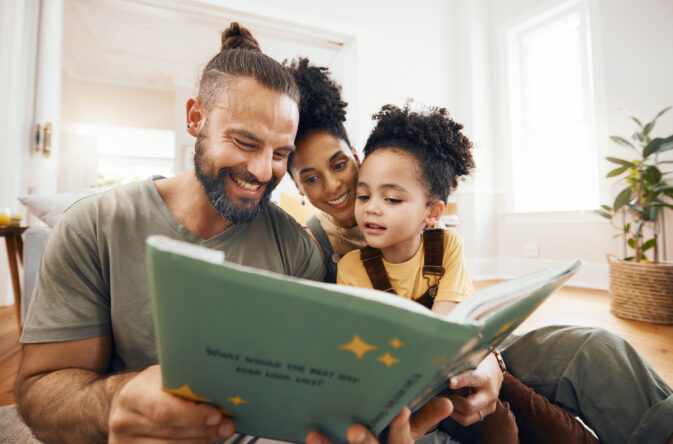
When introverts and extroverts clash (and they do), it’s rarely about drama. It’s about figuring out how to meet in the middle without blowing everything up. That sort of conflict resolution becomes a quiet lesson for kids watching it happen. Kids learn that disagreement doesn’t mean disrespect, and that strong personalities can coexist with a bit of compromise. That kind of emotional intelligence is learned by example.
11. They tag in and out more naturally.

One parent might be the go-to for social events, the other for one-on-one chats. Rather than fighting that, these couples often just lean into their strengths, which makes things run more smoothly. It’s not about splitting everything down the middle. It’s about knowing who thrives where and covering for each other without resentment. That teamwork is felt by the kids, even if they don’t consciously register it.
12. They give each other recharge time.
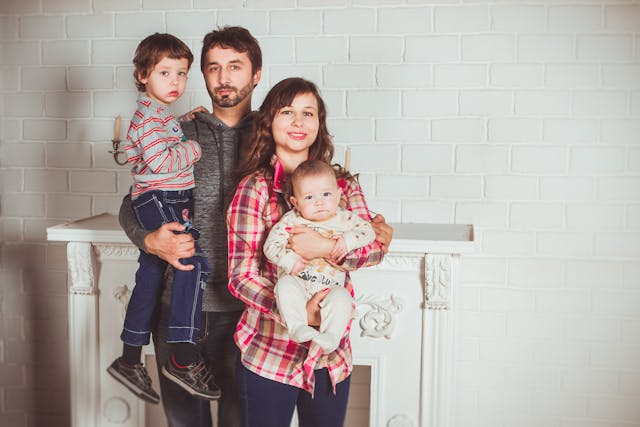
An introvert might need quiet time after a school run, while an extrovert might want a chat after dinner. When they respect each other’s energy needs, it sets a tone of mutual care, and that trickles down into how they care for their kids too. It also normalises the idea that taking breaks, saying no, or needing alone time isn’t selfish. That’s something a lot of adults are still unlearning, so teaching it young is a gift.
13. They prepare kids for different social styles.

Some children are born social butterflies, while others prefer to quietly observe. Growing up in a home with both an introvert and an extrovert helps kids understand and respect different ways of being in the world. They don’t grow up expecting everyone to interact the same way. Instead, they learn to meet people where they’re at, which makes them better at friendships, teamwork, and emotional awareness in general.
14. They naturally balance risk and caution.
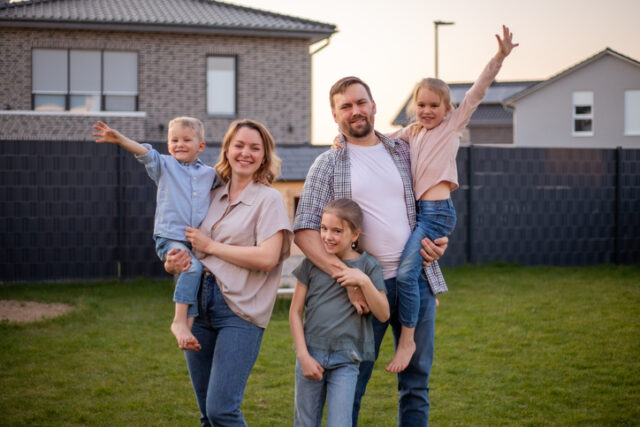
Extroverts might encourage trying new things, while introverts might be more focused on keeping things safe and thought-through. This balance helps kids feel supported in taking healthy risks, but not reckless ones. It’s not about being adventurous or cautious all the time. It’s about offering a grounded push when needed, and a careful pause when it matters most.
15. They give kids a fuller picture of love.

When kids grow up seeing two very different people love each other well, it stretches their idea of what love can look like. It’s not about perfect compatibility; it’s about effort, respect, and learning to care across differences. That kind of love is sturdy. It teaches kids that relationships don’t have to be identical to work. They just need intention, patience, and a bit of give and take. That’s a pretty solid foundation to grow up on.




